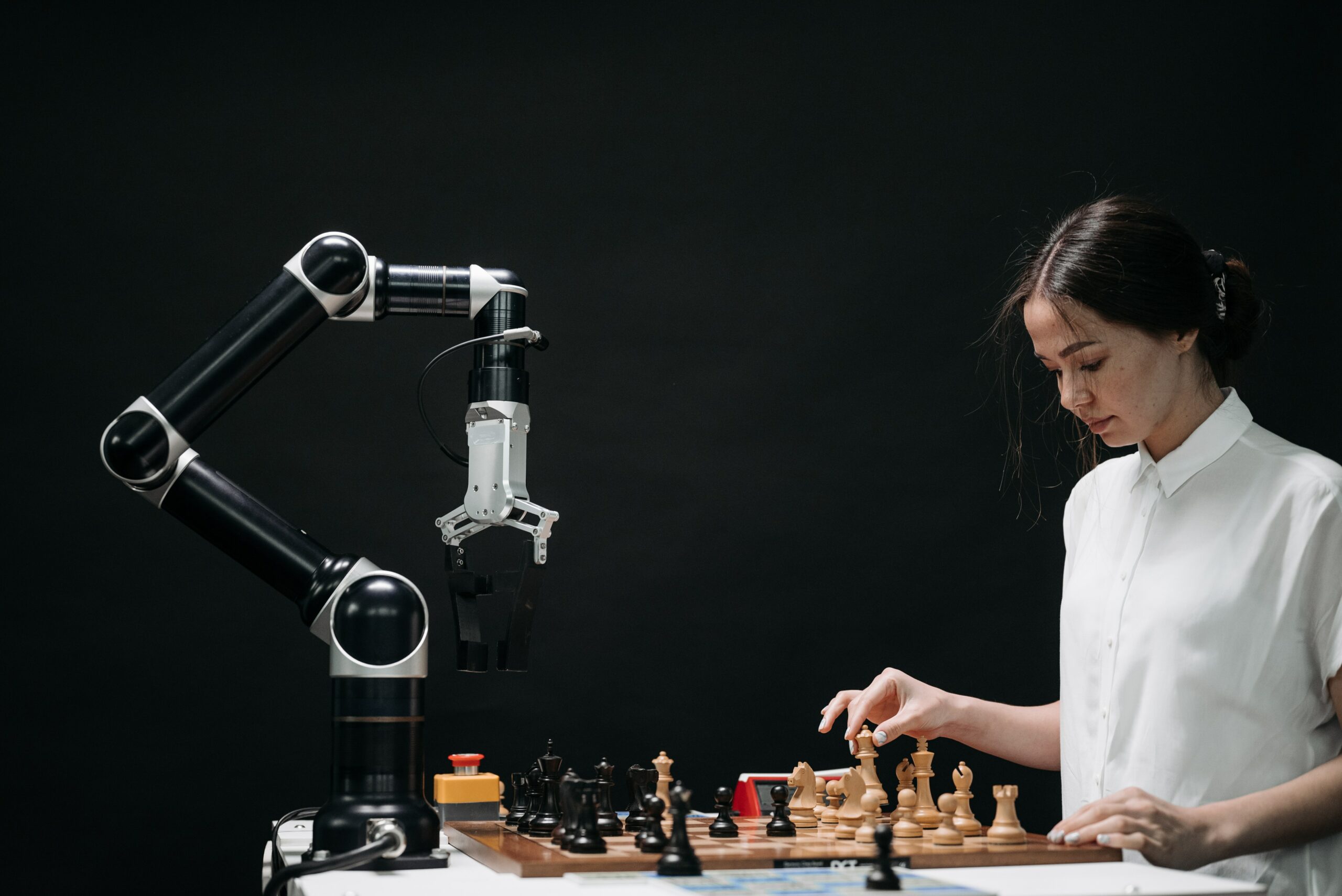The Future of AI and Machine Learning
Machine Learning (ML) is an application of Artificial Intelligence (AI). It’s the process of using mathematical models of data to help a computer learn without direct instruction. This enables a computer system to continue learning and improving on its own, based on experience.
The rapid development of AI and ML are transforming many different aspects of our lives. From healthcare and education to finance and entertainment, the scope of the potential applications of AI and ML are so vast. Here, we’ll explore the new challenges and opportunities this evolving technology will encounter and how it will shape our future.

Advancements in AI and ML
Arguably, the most significant developments of AI and ML, is the emergence of it’s ability to learn deeply intricate algorithms, which can process massive amounts of data and identify patterns that would otherwise be impossible to detect. Already, this has led to breakthroughs in image recognition, speech recognition, language process and automated driving. Another development that has truly taken the world by storm in the past months is the rise of AI-powered chatbots- which essentially can act as a personal, virtual assistant. The most popular being ‘Chat-GPT’, is being used by a huge variety of industries for very different purposes, whether it’s writing code, drafting up a proposal or solving mathematical queries, Chat-GPT has already had a revolutionary impact on multiple industries.
Ethical and Social Implications
As the influence of AI and ML become more widespread, ethical and social concerns have been raised regarding the implications of such technology. One of the most pressing issues that is already having an impact on many industries is, is the impact on employment. While AI and ML are creating new jobs, they’re automating far more, and in the future will only continue to make other peoples jobs obsolete. Even industries we would never have thought were replaceable by AI are being massively affected. AI art is becoming so technically competent and accessible that businesses are far less likely to employ or commission an artist for work when they can use AI to generate art of a very high level, far more efficiently and cost-effectively than if they were to outsource the work.
Another concern is the potential of such powerful tools when fed with bias and discriminatory data and algorithms. When trained on such data, they may perpetuate and even possibly amplify existing inequalities; with AI being so accessible now, these powerful tools falling into the wrong hands is certain and the likelihood of it being used with malicious intent is almost inevitable. For the same reason, concerns about AI and ML impact on privacy and cybersecurity.
Future Application of AI and ML
Despite the aforementioned threats, the potential applications and benefits of AI and ML could provide a vast variety of great advances. The healthcare industry is already using AI to improve diagnosis and treatment with the potential to advance the industry even further- AI-powered drug discovery is touted to be the core of the means to developing new treatments to fight diseases that are currently difficult to treat. Also, in education, AI is being used to personalise teaching and provide more effective feedback to students on an individual basis. In finance, it’s being used to detect patterns in line with fraudulent activities and improve risk assessment. In entertainment it can cultivate a more immersive, personalised experience for consumers.
The Role of Regulation
As the prevalence of AI and ML grow, as does the need for regulation to ensure that the negative externalities that come with such technology is minimised. Governments face a very difficult task regarding the ethical and responsible use of AI and ML as it can be very difficult to monitor, while steps are being taken to alleviate these concerns, much work is still to be done. A huge stopping point in addressing regulation in any sort of all encompassing way is the fact that it is a technology that is constantly evolving, making it incredibly difficult to keep up with the latest developments. A balance between allowing the potential benefits to flourish while minimising the harm caused will be key to how AI and ML shape our world in the future.
Conclusion
AI and ML pose a both exciting and challenging future. It is technology that has a frankly unknown potential, yet the impacts it is already having give a slight insight into just how powerful it is and how powerful it can become. As we continue to implement systems with AI and ML at the core, it is vital we do so in an ethical manner, ensuring the technology benefits everyone. With the right approach, AI and ML have the power to cultivate a brighter future for all.
Struggling to make sense of the tech world? We understand that learning and keeping up with the ever-evolving technology can be overwhelming.
That’s why our team of experts is here to break down all of the jargon and get you on your way. Reach out to us today for professional support and advice for all your hardware and software needs!




